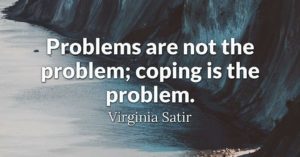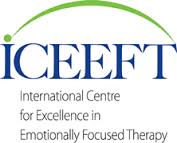My Online Counselling Approach
I work primarily from a model informed by Emotionally Focused Therapy. This integrates Attachment Theory and the teachings and values of Virginia Satir and Carl Rogers. I also integrate and utilize the principles of mindfulness, both as a therapist and with my clients.
Emotionally Focused Therapy
Emotionally Focused Therapy (EFT) is a short-term structured approach to working with individuals, couples, and families. It integrates elements of Gestalt therapy, Person-Centered therapy, systems theory and attachment theory.
EFT is an evidence-based treatment that focuses on helping people accept, express, regulate, make sense of and transform emotion. Learning about emotions is not enough-clients to experience those emotions. By investigating past negative experiences and feelings associated with them, we transform emotions such as fear, anger, sadness and shame into more regulated emotional states.
Essentially, we uncover the feelings beneath the feelings.
Attachment Theory
Attachment theory is focused on the relationships and bonds between people, particularly long-term relationships, including those between a parent and child and between romantic partners.
Secure attachment provides a safe haven: a retreat from the world and a way to obtain comfort, security and a buffer against stress. Secure attachment also provides a secure base: a feeling of safety so you feel confidence to explore the world and learn. It begins with our early interactions with our parents (or caregivers) and continues into adulthood. An “unavailable parent” creates separation distress in a baby similar to an “unavailable partner” would create separation distress in an adult. Attachment theory provides a “road map” to work through the distress, emotions and needs for individuals, couples and families.
The Satir Model

One of Satir’s well known ideas was that the “presenting issue” was seldom the real problem, instead, she believed that how people coped with the issue actually created the problem. Her purpose was to improve relationships & communication within the family unit. She was internationally recognized as the “Mother of Family Therapy” and remained a leading force for human growth and family therapy until her death in 1988.

The Person-Centered Approach

Carl Rogers was an influential American psychologist and founder of person-centered therapy, also known as Rogerian therapy. Rather than pathologizing behaviors and thoughts, he believed that by providing genuine empathy and unconditional acceptance, and by following the client’s lead instead of directing the course of therapy, change would unfold.

Mindfulness
Mindfulness is defined as being aware of moment-by-moment thoughts, feelings, body sensations, and surroundings, without judging whether they are right or wrong. Mindfulness focuses the attention on the present, instead of our instinctive nature to be drawn to either the past or the future. Evidence supports the use of mindfulness as a way to alleviate symptoms of a variety of mental and physical disorders, such as chronic pain, depression, anxiety. As well, mindfulness has been proven as an effective tool for self-regulation.

Here are some of the core ideas that guide my counselling practice.
- Change is possible.
- Our family of origin has a significant influence on our attitudes and behavior.
- Individuals are better understood within the context of their relationships. We live, grow and flourish in our relationships. We also heal, change and overcome obstacles through relationships.
- No task is more difficult than the role of parent. Parents do the best they can with the resources available to them at any given time.
- Every person has the internal resources to successfully change and grow.
We may not be able to choose every situation, but we can choose how we respond. - Efforts towards change need to focus on health and possibilities instead of pathology.
- Hope is a fundamental element towards change and growth.
- The problem is not the problem, attachment and coping are the problem.
- Emotions must be felt before change and growth can begin.
- We cannot change the past, only the effects it has on our current lives.
- There is never a “one size fits all” answer to a problem.
- Counselling is a collaborative process.
Proudly associated with the following organizations.



